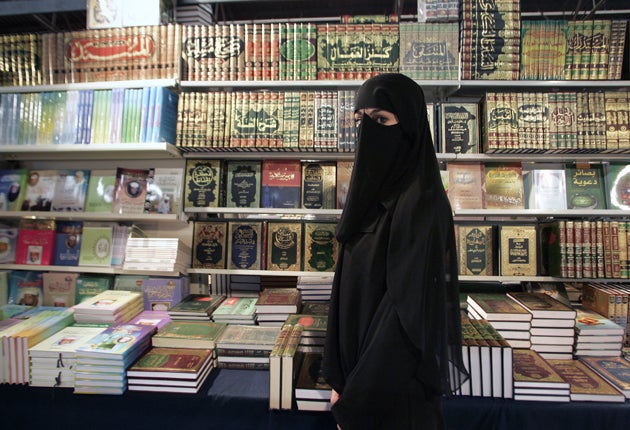Muslim women didn’t need a review to prove Boris Johnson’s comments about the burqa were offensive
What the Conservative Party needs to hear is the lived experiences of Muslim women in Britain


Your support helps us to tell the story
From reproductive rights to climate change to Big Tech, The Independent is on the ground when the story is developing. Whether it's investigating the financials of Elon Musk's pro-Trump PAC or producing our latest documentary, 'The A Word', which shines a light on the American women fighting for reproductive rights, we know how important it is to parse out the facts from the messaging.
At such a critical moment in US history, we need reporters on the ground. Your donation allows us to keep sending journalists to speak to both sides of the story.
The Independent is trusted by Americans across the entire political spectrum. And unlike many other quality news outlets, we choose not to lock Americans out of our reporting and analysis with paywalls. We believe quality journalism should be available to everyone, paid for by those who can afford it.
Your support makes all the difference.Muslim women didn’t need a review into Islamophobia to tell the Conservative party that Boris Johnson’s comments about Muslim women wearing the burqa were insensitive and had profound effects on their lives.
Johnson has apologised for any offence caused and has said that he would not use some of the offending language from his past writings today, now that he is prime minister. If he ever has to revert to journalism to earn his living – a possibility that still looms – it will be interesting to see if he reverts to using the same type of language once more.
This seems unlikely, as for over a year now the entire UK population has had to walk around looking like “a letterbox or a bank robber” – as Johnson described women wearing the burqa in 2018 – in order to fend off Covid-19; even the prime minister.
The recent independent review into allegations of Islamophobia in the Conservative Party was led by Professor Swaran Singh, who concluded that Tory leadership “ought to set a good example for appropriate behaviours and language”.
Muslim women have experienced being mocked as “letterboxes” in supermarkets, and have had people refusing to sit next to us on the tube – so the Conservative party could have just asked us how Muslim women felt.
If they had, we would have given our lived experiences and reminded them of the fact that in this country, everyone has the right to choose what they want to wear. We have never mocked the Queen for wearing a headscarf, nor targeted teenagers for wearing hoodies or showing their underpants above their jeans. Yet targeting one specific religion in our multicultural society has only served to perpetuate stereotypes associated with Islam and created further division and suspicion.
In September 2019, a Tell Mama report found that Islamophobic incidents rose by 375 per cent the week after Boris Johnson’s infamous “letterboxes” comment. In the same month, I wrote an article for The Independent about this, venting my frustrations at the irony of how Johnson, on one hand, opposes the banning of veils in public and yet wrote it was “absolutely ridiculous that people should choose to go around looking like letterboxes”.
There are numerous examples of anti-Muslim rhetoric, including a vile video published by a man hurling racist abuse at Muslim schoolgirls outside Central Foundation Girls’ School in Bow. The man commentating on the clip suggested that girls (aged between 11 and 18) should be “sterilised in an experiment similar to those carried out by Dr Josef Mengele”.
I have questioned whether the debate has become more about the objectification of Muslim women rather than their multifaceted identities, successes, and aspirations. I have spoken to so many Muslim women in my ward who have told me how they have been left out of conversations, with some people believing that they don’t have anything to contribute, let alone have a voice of their own – in the workplace, at school and many other meeting scenarios.
Despite the fact that Muslim women in the UK are proud to be Muslim and proud to be British, they are still regarded as targets in a culture war by some who feel that their country is being “taken over” by people of colour.
Stereotypes and labelling have affected their confidence and empowerment, and these flawed assumptions attract discrimination and ostracisation. Instead, we should be challenging the stereotypes surrounding Muslim women, and dispelling the myths of subjugation and lack of professional ambition.
What the Conservative Party needs to hear is the lived experiences of Muslim women in living in Britain – not just a review.
Rabina Khan’s book, ‘My Hair Is Pink Under This Veil’ ,offers a candid insight into the life of a hijab-wearing Muslim woman in modern Britain
Join our commenting forum
Join thought-provoking conversations, follow other Independent readers and see their replies
Comments